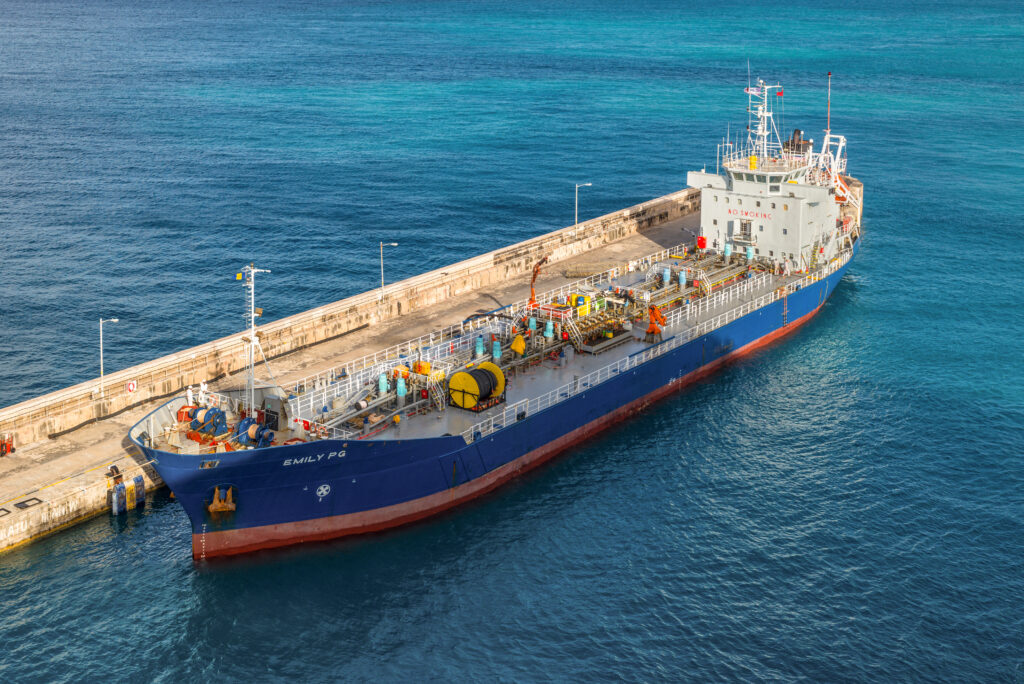

Vice President Kamala Harris officially launched the initiative—called PACC 2030 for short—during a meeting with leaders of the Caribbean Community (CARICOM) and the Dominican Republic held at the Ninth Summit of the Americas in Los Angeles. Biden later joined the meeting and in public remarks, emphasized the importance of working with the Caribbean region on climate and other issues.
“You’re critically important to us in every way, and I hope we’re important to you,” he said. Biden said he believes the United States can assist the Caribbean countries in preparing for and recovering from natural disasters and in gaining access to development financing.
“I think we can work with you to strengthen the region’s ability to adapt to climate change,” he said, adding that he hopes to improve government-to-government collaboration and strengthen private investment in the region. The United States and other major economies have an obligation to help the rest of the world address the consequences of the damage done to the climate by wealthy countries, he said.
In her remarks to the leaders, Harris said PACC 2030 will be the U.S. government’s primary mechanism for addressing energy security and the climate crisis in the Caribbean, a region “on the front line” of the climate crisis.
“Through this partnership, we will support energy infrastructure and climate resilience projects at every stage of development, from beginning to end,” she said.
That support, she said, will include several key steps: identifying new clean energy projects; providing technical assistance to make sure these are viable and attractive both to the countries and to investors; taking investors to the region to showcase the projects; and improving access to development financing to make the projects a reality. Harris stressed that the private sector will be involved at every stage of this effort.
“When we accelerate the transition to clean energy, I think we all believe that we unlock great economic opportunities for the entire region,” she said.

The U.S.-Caribbean Partnership to Address the Climate Crisis 2030—called PACC 2030—was a focus of a meeting with leaders from the Caribbean region, held during the Ninth Summit of the Americas.
CARICOM Secretary General Carla Barnett, for her part, talked about region’s heavy dependence on imported fossil fuels and the importance of energy security.
“Oil and gas reserves are concentrated in a few of our countries, but we are predominantly net energy importers and therefore for us, energy security is a critical matter, even as we seek to transition our energy systems to more modern, clean, and reliable supplies of renewable energy,” she said. “Our position is to optimize our indigenous sources as we make that judicious transition to renewable resources,” she added.
“We are therefore pleased to have this conversation,” Barnett said. “We are aware that our own public sector fiscal constraints limit the extent to which our governments can finance a transition to renewables, and therefore the undertaking to provide sources of financing that our private sector can access is really very important.”

Caribbean countries tend to be heavily dependent on imported fossil fuels, which makes energy security an especially vital issue for the region.
The leaders’ meeting with both Biden and Harris covered a range of urgent challenges facing the CARICOM countries and the Dominican Republic, according to a White House statement. These included the impacts of the COVID-19 pandemic, climate change, and food and energy insecurity, among other issues.
In an opinion essay published the week after the Summit, Ambassador Sir Ronald Sanders, the Permanent Representative of Antigua and Barbuda to the United States and the Organization of American States (OAS), wrote that the meeting “generated a sense that something might come of it.” He said that “hard truths were exposed but with honesty and respect.”
The White House announced after the meeting that the leaders had agreed to form three high-level committees “tasked with developing immediate and concrete, joint, and near-term solutions.” At a virtual event sponsored by the Inter-American Dialogue the week after the Summit, the U.S. Assistant Secretary of State for Western Hemisphere Affairs, Brian Nichols, said that the three groups will focus on energy, food security, and finance and that there will be “measurable outcomes” to determine the success of these efforts.
Noting that the Caribbean is sometimes referred to as “the third border” with the United States, Nichols underscored the importance of the partnership on climate issues. The Caribbean, he said, “is probably the most crucial region, as it is the most vulnerable region, in our hemisphere on climate.”
Prime Minister Andrew Holness of Jamaica was among several Caribbean leaders who welcomed the PACC 2030 announcement at the Summit. In his address to his fellow leaders, he also commended the U.S. administration for “its general posture of listening and paying attention to the particular concerns and challenges of small developing states within the hemisphere.”
 View Map
View Map